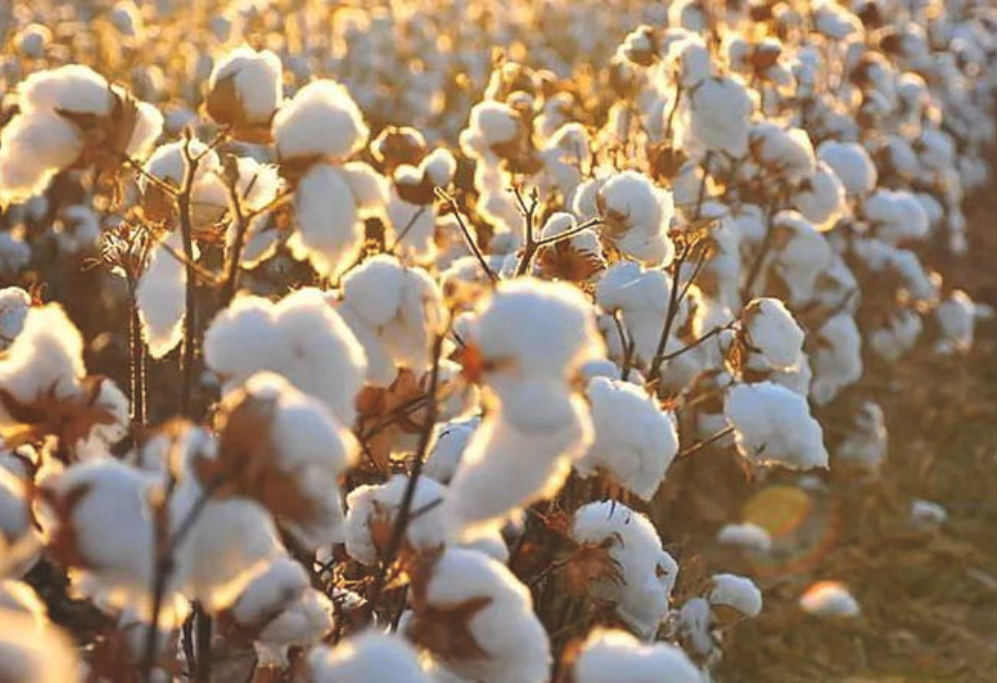Cotton, a natural fiber derived from the cotton plant, has been a staple in the textile industry for centuries. With its numerous desirable qualities, cotton fabric is favored by both consumers and manufacturers alike. In this blog, we will delve into the key characteristics and benefits of cotton fabric, understanding why it remains a popular choice for clothing, bedding, and various other applications.
Natural and Sustainable
One of the most significant advantages of cotton fabric is its natural and sustainable nature. As a plant-based fiber, cotton is renewable and biodegradable, making it an environmentally friendly choice. Cotton farming practices have evolved to embrace sustainable methods, reducing water consumption and pesticide usage. This makes cotton a preferred option for those seeking eco-conscious clothing and textile products.
Breathability and Comfort
Cotton fabric’s breathability is another key characteristic that sets it apart. Its natural fibers allow air to circulate freely, keeping the body cool and comfortable, particularly in warm weather. The fabric absorbs moisture, drawing sweat away from the skin and evaporating it quickly. This property makes cotton ideal for activewear, undergarments, and bedding, ensuring a comfortable and dry experience.
Softness and Gentle on Skin
Cotton fabric is renowned for its soft and gentle feel against the skin. Its natural fibers are smooth and non-irritating, making it suitable for individuals with sensitive skin or allergies. The fabric’s softness adds to the overall comfort, providing a cozy and enjoyable wearing experience. From everyday clothing to baby garments and linens, cotton’s soft touch is highly valued.
Versatility in Style and Functionality
Cotton fabric offers versatility in both style and functionality. It can be woven into a variety of textures and weights, from lightweight and breathable voile to sturdy denim and cozy flannel. This versatility allows for endless possibilities in garment design and ensures that cotton can cater to different preferences and needs. Whether it’s a flowing summer dress, a tailored shirt, or durable workwear, cotton fabric delivers on both style and functionality.
Durability and Longevity
Cotton fabric is known for its durability and longevity. The natural fibers are strong and resilient, able to withstand regular wear and frequent washing without losing their quality. This makes cotton garments a worthwhile investment, as they can withstand the test of time and retain their shape and color. Additionally, cotton fabric tends to get softer with each wash, enhancing the comfort and adding to the fabric’s appeal.
Easy Care and Maintenance
Another advantage of cotton fabric is its ease of care and maintenance. Cotton is generally machine washable and can withstand high-temperature settings, making it convenient for everyday use. The fabric also resists pilling and wrinkling, requiring minimal effort to keep it looking fresh and presentable.
Pros:
- Breathability: Cotton fabric allows air to circulate freely, keeping the body cool and comfortable, particularly in warm weather.
- Softness: Cotton is known for its soft and gentle feel against the skin, providing a comfortable wearing experience.
- Versatility: Cotton can be woven into various textures and weights, offering a wide range of options for different types of clothing and textile products.
- Sustainability: Cotton is a natural and renewable fiber, making it an eco-friendly choice. Organic cotton, grown without harmful chemicals, offers an even more sustainable option.
- Durability: Cotton fabric is strong and resilient, able to withstand regular wear and washing without losing its quality.
- Easy Care: Cotton is generally machine washable and resistant to pilling and wrinkling, making it easy to care for and maintain.
- Hypoallergenic: Cotton fabric is non-irritating and suitable for individuals with sensitive skin or allergies.
- Absorbency: Cotton has excellent moisture absorption properties, wicking away sweat from the body and keeping the skin dry.
Cons:
- Wrinkling: Cotton fabric tends to wrinkle easily, requiring ironing or steaming to maintain a smooth appearance.
- Shrinkage: Cotton has a tendency to shrink when exposed to high temperatures, so proper care must be taken to avoid this.
- Color Fading: Some cotton fabrics may experience color fading over time, especially with frequent washing or exposure to sunlight.
- Stretching: While cotton fabric is generally durable, it may stretch or lose its shape over time, especially when subjected to excessive pulling or stretching.
- Stiffness: Certain types of cotton fabric, especially those with a higher thread count, can feel slightly stiff initially but usually soften with wear and wash.
Conclusion
Cotton fabric possesses a remarkable set of characteristics and benefits that have solidified its position as a favored textile choice. From its natural and sustainable nature to its breathability, softness, versatility, durability, and ease of care, cotton fabric continues to provide comfort, style, and functionality. Its gentle touch on the skin, hypoallergenic properties, and ability to blend with other fibers add to its appeal and versatility. As consumers increasingly prioritize sustainability, comfort, and longevity, cotton fabric remains unmatched in meeting these demands.
Frequently Asked Questions (FAQ)
What are the key characteristics that make cotton fabric a popular choice?
Cotton fabric has long been a beloved textile choice due to its unique combination of desirable qualities. First and foremost, its breathability allows air to circulate freely, preventing the uncomfortable buildup of heat and moisture that often occurs with synthetic fabrics. This makes cotton garments exceptionally comfortable in warm weather or during physical activity. Additionally, the natural fibers of cotton are incredibly soft and gentle against the skin, creating a luxurious feel that is both soothing and non-irritating. This softness, combined with its durability and versatility, makes cotton the perfect material for a wide array of clothing and textile applications, from everyday t-shirts and jeans to elegant dresses and home linens. Furthermore, cotton’s absorbent nature allows it to wick away moisture from the body,keeping the wearer cool and dry in various conditions. Overall, the combination of breathability, softness, versatility,durability, and absorbency contributes to cotton’s enduring popularity as a fabric choice.
Is cotton fabric environmentally friendly?
The environmental impact of cotton fabric is a complex and multifaceted issue. On one hand, cotton is a natural fiber derived from plants, making it a renewable resource compared to synthetic fibers that rely on petrochemicals.Furthermore, cotton is biodegradable, meaning it will naturally break down over time, unlike synthetic materials that can persist in landfills for centuries. The rise of sustainable agriculture practices, such as the use of fewer pesticides and herbicides, water conservation, and crop rotation, has further improved cotton’s environmental profile. Organic cotton,in particular, is grown without the use of harmful chemicals, making it a more sustainable option. However, it’s important to acknowledge that conventional cotton farming can have negative environmental consequences, such as water pollution from pesticide runoff and soil degradation. To ensure you’re choosing truly eco-friendly cotton products, look for certifications like GOTS (Global Organic Textile Standard) or Oeko-Tex Standard 100, which guarantee the use of sustainable practices and the absence of harmful substances.
How does cotton fabric compare to synthetic fabrics in terms of breathability?
When it comes to breathability, cotton fabric stands head and shoulders above many synthetic alternatives. Its unique structure, composed of natural fibers with tiny pores, allows for optimal air circulation. This prevents the uncomfortable buildup of heat and moisture that often occurs with synthetic fabrics, especially in warm weather or during physical activity. Synthetic fabrics like polyester and nylon, while often durable and wrinkle-resistant, tend to trap heat and moisture due to their tightly woven construction and lack of natural pores. While some synthetic fabrics are engineered with moisture-wicking technology, they typically achieve this by pulling moisture away from the body and then evaporating it on the fabric’s surface. Cotton, on the other hand, absorbs moisture into its fibers, keeping the wearer feeling dry and comfortable for extended periods.
Can cotton fabric cause allergies or irritations?
Cotton fabric is generally considered a safe and gentle option for most people, even those with sensitive skin. It’s naturally hypoallergenic, meaning it’s less likely to trigger allergic reactions compared to synthetic materials, which can sometimes contain harsh chemicals or irritants. The soft, smooth texture of cotton fibers is also less likely to cause skin irritation. However, it’s important to note that individual reactions to fabrics can vary. While rare, some individuals might experience mild irritation from certain types of cotton fabrics, especially if they have extremely sensitive skin or specific allergies. If you have known sensitivities, it’s always recommended to do a patch test with a small piece of fabric before wearing a new garment. Opting for organic cotton can further minimize the risk of irritation, as it’s grown without the use of pesticides or herbicides that could potentially trigger allergic reactions.
How do I properly care for cotton fabric to maintain its quality?
Proper care and maintenance are key to ensuring the longevity and continued comfort of your cotton garments. When washing cotton fabrics, opt for cold or warm water to prevent shrinkage and maintain color vibrancy. Using a gentle cycle and mild detergent will further protect the fibers and prevent damage. Avoid using high heat in the dryer, as this can cause cotton to shrink. Air drying is the most gentle option, preserving the fabric’s natural texture and preventing unnecessary wear and tear. If you must use a dryer, choose a low or delicate setting. Ironing cotton garments while they are still slightly damp can help remove wrinkles and restore their crisp appearance. However, be sure to use a medium heat setting to avoid scorching the fabric. When storing cotton garments, choose a cool, dry place away from direct sunlight, which can cause fading over time. Avoid hanging heavy cotton items for extended periods, as this can lead to stretching and distortion of the fabric. By following these simple care instructions, you can enjoy your cotton garments for many years to come.






